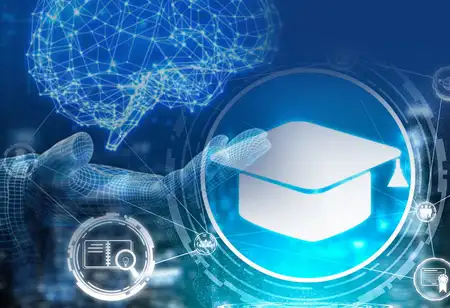THANK YOU FOR SUBSCRIBING
Be first to read the latest tech news, Industry Leader's Insights, and CIO interviews of medium and large enterprises exclusively from Education Technology Insights
Transforming Education with AI
Artificial Intelligence (AI) has emerged as a transformative force in various industries, and the K12 educational technology sector is no exception.

By
Education Technology Insights | Monday, November 06, 2023
Stay ahead of the industry with exclusive feature stories on the top companies, expert insights and the latest news delivered straight to your inbox. Subscribe today.
Artificial intelligence's role in education will only grow and evolve, making it more efficient and effective.
FREMONT, CA: Artificial Intelligence (AI) has emerged as a transformative force in various industries, and the K12 educational technology sector is no exception. With its ability to perform tasks like thinking and learning, AI has become a key driver of innovation and educational growth. The recent global pandemic has further accelerated the development of educational technology and AI, with the AI market in the US educator sector projected to grow significantly over the next few years.
Already, AI is making a significant impact in K12 educational systems, offering a range of promising benefits that can be integrated now and in the future. AI agents serve as intelligent tutors, providing support and motivation to learners in various ways. Teachers can leverage AI-powered products to individualize instruction through text-decoding solutions, interact with multilingual parents using AI translation technology, and enhance access for low-vision learners with accessibility checkers and Computer Vision (CV) techniques.
Given the increasing learner needs, administrative burden, and paperwork, K12 teachers face immense pressure and stress. The high attrition and turnover rates of teachers in the US highlight the real challenges they encounter. AI comes to the rescue by analyzing learner performance and automating tasks, freeing up teachers' time for more direct student interaction and achieving better outcomes. It is possible to significantly reduce the amount of time spent on preparation activities, such as drafting question papers and lesson plans, by making these tasks more efficient. Teachers can use multiple mathematics tools to analyze learners' current understanding levels and group them based on their needs, reducing the preparation burden. Moreover, technological advances in Natural Language Processing (NLP) enable computers to evaluate and provide formative, detailed feedback on essays, further streamlining the evaluation process.
AI's ability to analyze students' history and learning abilities empowers teachers to cater to each student's unique needs and adapt their study materials accordingly. Student learning is enhanced by this personalized approach, which ensures that they receive targeted support in their areas of challenge or skill gaps, leading to improved learning outcomes. Additionally, AI-powered chatbots can answer repetitive and generic questions students ask, freeing teachers from mundane tasks, allowing them to focus on curriculum research and lesson planning, and enhancing student engagement.
Implementing AI in K12 education automates various tasks, such as assessing learning patterns, administrative work, grading papers, and answering general questions, leading to greater efficiency in the educational process. Blended education, which combines online and in-class approaches, is becoming increasingly popular. By integrating cognitive technologies like Machine Learning and AI with traditional classroom activities, teachers can create enriching student experiences and foster greater flexibility in the learning process.
Although adopting AI will not replace K12 teachers, it will save them time and streamline their workflows. As the AI industry continues to grow and innovate, educators and students can look forward to improved learning outcomes and enriched educational experiences in the future.
I agree We use cookies on this website to enhance your user experience. By clicking any link on this page you are giving your consent for us to set cookies. More info

However, if you would like to share the information in this article, you may use the link below:
k12.educationtechnologyinsightsapac.com/news/transforming-education-with-ai--nid-2467.html






